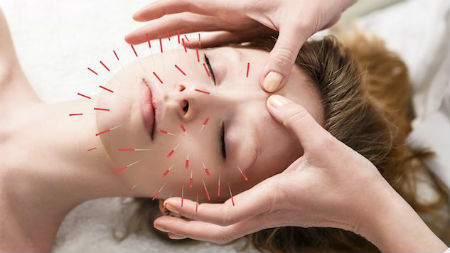WHAT IS ANXIETY
Anxiety affects more than 40 million US adults in some form. Anxiety refers to excessive worrying that is hard to control, and can impact the day to day life on an individual. Anxiety is typically treated with psychotherapy, medication, or a combination of both. However, severe anxiety can be more difficult to manage.
Treating severe anxiety generally requires therapy, and results might not be seen for months, according to the Anxiety and Depression Association of America. Not only is therapy usually necessary, but medications as well. These medications can come with serious side effects. However, when receiving acupuncture for anxiety, symptoms lessen after the first few visits, and practitioners are confident that it attacks the problem at its roots.
WHAT IS ACUPUNCTURE
Acupuncture is the ancient practice of inserting small needles into pressure points on the body. Acupuncture has become a popular alternative treatment for anxiety. In fact, acupuncture has increased in popularity since the 1970s. The reason for the climb in popularity is due to the simple fact that acupuncture works. There has been growing research supporting acupuncture’s effectiveness in treating anxiety, as well as other mental conditions including panic attacks, PTSD, and OCD.
According to a study that was published online in the Journal of Acupuncture and Meridian Studies, students who underwent a 20-minute acupuncture session were found to have less anxiety and better memory immediately afterward than those who didn’t have acupuncture.
BENEFITS OF ACUPUNCTURE FOR ANXIETY
Like stated above, there have been studies about the effects of acupuncture on anxiety. Most of the studies have been focused around generalized anxiety disorder (GAD), and suggest that acupuncture is helpful in treating general anxiety disorder.
In fact, according to a study from 2015, acupuncture has improved the symptoms of anxiety in people that didn’t respond to other treatments, which include psychotherapy and medication. In this study, individuals received ten 30-minute sessions over a period of 12 weeks. Individuals that participated in this study experienced a significant reduction of anxiety. This reduction in anxiety lasted even 10 weeks after acupuncture treatment.
This isn’t the only study to shows the effectiveness of acupuncture for anxiety. A study published online in 2013 in the Journal of Acupuncture and Meridian Studies showed that students who underwent a 20-minute session were found to have less anxiety and better memory immediately afterward than those who did not have acupuncture.
In a 2016 study, acupuncture was used on rats and was found to be effective for reducing their anxiety. The researchers suggested that it impacts how the body triggers the fight or flight response.
Daniel Hsu, Doctor of Acupuncture and Oriental Medicine, says acupuncture has increased in popularity in the last several decades simply because it works, and now there is growing research to support its effectiveness for anxiety and other mental conditions.
HOW ACUPUNCTURE FOR ANXIETY WORKS
Typically, therapy for anxiety disorders requires months of work before seeing results, and anxiety medication can come with some serious side effects. However, when acupuncture for anxiety is effective, symptoms can lessen after the first few visits, and many practitioners are confident that it attacks the problem at its roots.
According to Dr. Hsu, each acupuncture needle is inserted half a millimeter away from a nerve. Depending on where the needles go, acupuncture can cause the nervous system to product painkilling chemicals, jump-start the body’s natural ability to heal itself, or stimulate the part of the brain that controls emotions, including anxiety.
This allows individuals to feel more balanced and can help treat a variety of illnesses.
Are you interested in trying acupuncture for your anxiety? Give East West Health a call to learn how we can help you manage your anxiety.
Here are some other articles you will like:
Written by: Nicole Weisbrich